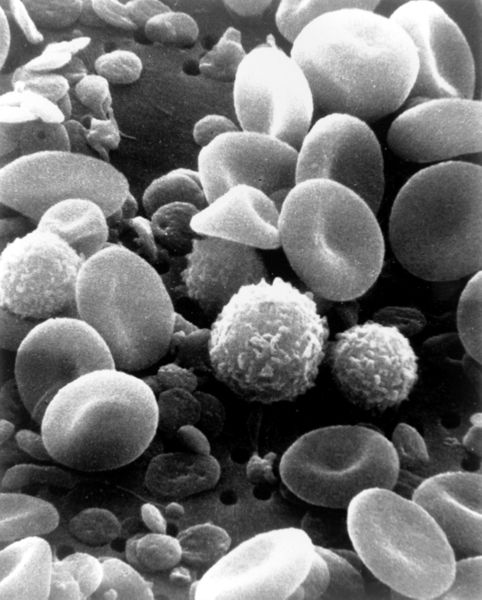Scientists have uncovered a hitherto unknown trigger that makes blood clot.
 The discovery, announced in the current issue of the journal Cell by Tufts University researcher Athan Kuliopulos and his colleagues, could provide us with a host of new drugs to help prevent heart attacks and strokes. The team have found that platelets, which are specialised small "remnants" of cells that circulate in the bloodstream and help to trigger blood clotting by blocking up breaches in blood vessels, carry on their surfaces enzymes called matrix metalloproteases (MMPs). These MMPs are activated whenever a platelet comes into contact with collagen, the connective tissue that makes up the inner wall of blood vessels.
The discovery, announced in the current issue of the journal Cell by Tufts University researcher Athan Kuliopulos and his colleagues, could provide us with a host of new drugs to help prevent heart attacks and strokes. The team have found that platelets, which are specialised small "remnants" of cells that circulate in the bloodstream and help to trigger blood clotting by blocking up breaches in blood vessels, carry on their surfaces enzymes called matrix metalloproteases (MMPs). These MMPs are activated whenever a platelet comes into contact with collagen, the connective tissue that makes up the inner wall of blood vessels.
When the MMPs switch on, the team found, they cut open a second platelet-activating protein called PAR1, which behaves rather like the pin in a hand-grenade, priming the platelet for action. When this happens the platelet loses its smooth shape and takes on a spiky, jagged configuration enabling it to lodge in areas of blood vessel damage and form the foundation for a blood clot or thrombus.
Whilst this is useful in preventing bleeding, when it occurs on the wall of a diseased artery damaged by atheroma it can trigger the formation of a fatal clot that can block the vessel and trigger events such as heart attacks. Doctors try to prevent this process with drugs like aspirin, but these are not without the risk of side effects such as bleeding. "An MMP inhibitor might be better tolerated," says Kuliopulos.










Comments
Add a comment